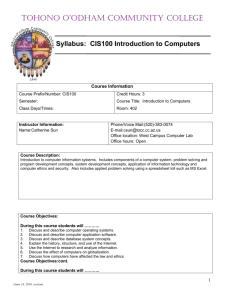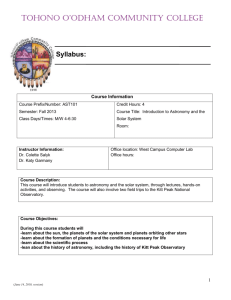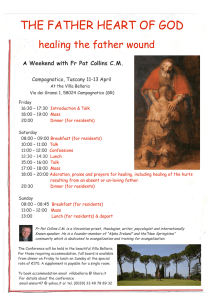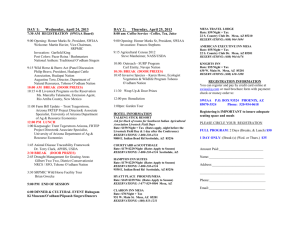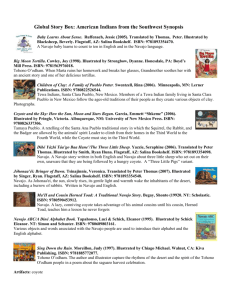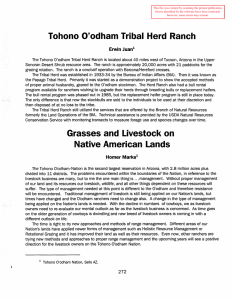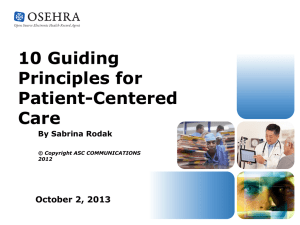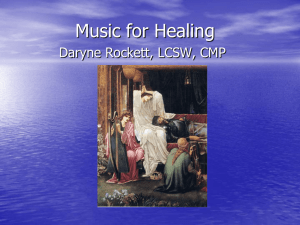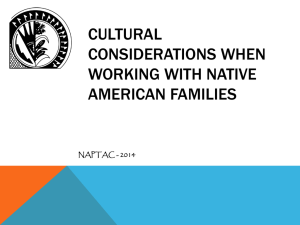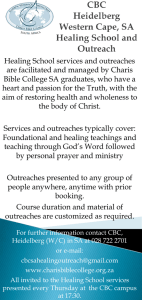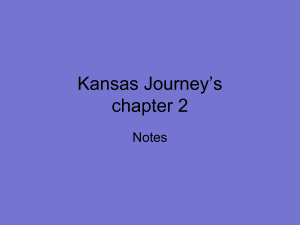Powerpoint
advertisement
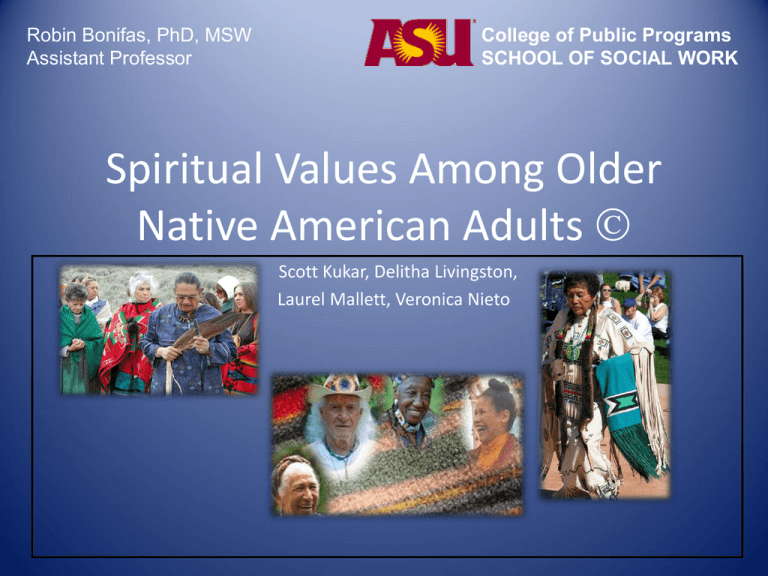
Robin Bonifas, PhD, MSW Assistant Professor College of Public Programs SCHOOL OF SOCIAL WORK Spiritual Values Among Older Native American Adults Scott Kukar, Delitha Livingston, Laurel Mallett, Veronica Nieto Native Americans: Background • 560+ federally recognized tribes • 200+ languages Native Americans: Background • Likely to live in rural areas and in poverty • Lower education level than other ethnic groups • Heterogeneous population Challenges • • • • False positives of cognitive impairment Discounting background leads to false negatives Alzheimer’s not treated if not viewed as problematic Intertribal and intratribal variances Suggestions • Acknowledge different life experiences including education. • Establish rapport and show respect. • Use bilingual family members as interpreters with caution because they may not provide the most accurate translations due to discomfort in translating sensitive topics.. Nursing Homes • A fraction of federally recognized tribes own and operate nursing homes. • In a study conducted in the Northern Plains, paraprofessionals noted tribal language calmed down “confused” residents. • Staff believed residents became more culturally traditional and monolingual as dementia progressed. Activities • Pow-wow music and traditional foods are important for elder’s well-being but are not preventive or corrective to behavioral issues. Assimilation • Among the Anishinaabe tribe, “traditional” is measured by: » being given an Indian name, » fluency in native language » participation in traditional activities • Be aware of federal policies which affected tribes (relocation, reservations, schools). Navajo • Religious healing forms: » Traditional Navajo ceremonial healing » Native American Church (NAC) » Navajo Christian faith healing • Accommodate ceremonies/practices to life (e.g., surgery on 5th day) • Importance of family White Mountain Apache • Social workers at nursing homes rely on family to communicate spiritual needs of residents. White Mountain Apache • Some residents from the tribe have adopted Christian religions. White Mountain Apache • Staff are made aware of resident’s preference for participating/watching cultural demonstrations. Tohono O’odham • Time outdoors and privacy are very important. Tohono O’odham • Traditional music and food are comforting. Tohono O’odham • Communicating with ancestors is normal. • A traditional healer may be helpful, if resident is distressed about something. Summary: Cultural and Spiritual Considerations • Interpreters are needed for those who speak limited English. • Being in unfamiliar surroundings can be frightening and connecting with nature can help. • Family inclusion is very important. • Traditional food and music are comforting. • Keep an open mind when Native American clients appear to be “isolating,” “talking to themselves” or eating lightly. • Consult with family and traditional healers whenever possible. • Realize you are all part of the “healing circle”.
